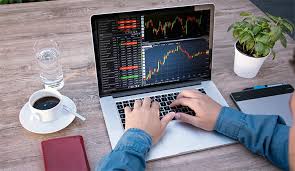
The Ultimate Guide to Choosing a Forex Trading Broker
When entering the world of trading, one of the most significant decisions you’ll make is selecting a Forex trading broker. A good broker can drastically affect your trading experience and overall success. In this guide, we’ll discuss how to choose the right Forex broker for your needs and the key features to look out for. To start your journey, visit forex trading broker ex-zar.com for more resources.
1. Understanding Forex Trading Brokers
Forex trading brokers act as intermediaries between traders and the international foreign exchange market. They provide access to price quotes for currency pairs and execute trades on behalf of their clients. The Forex market is the largest financial market in the world, with a daily trading volume exceeding $6 trillion. With the vast opportunities it presents, finding the right trading broker is paramount for both beginners and experienced traders.
2. Types of Forex Brokers
Forex trading brokers can be categorized into three main types:
- Market Makers: These brokers create their own market for currency pairs and typically offer fixed spreads. They can execute trades at their own prices and act as the counterparty to their clients’ trades.
- ECN Brokers: Electronic Communication Network (ECN) brokers connect traders directly to the interbank market, allowing for variable spreads and more transparent pricing. They charge a commission for each trade in exchange for access to the most competitive prices.
- STP Brokers: Straight-Through Processing (STP) brokers route orders directly to liquidity providers, blending the advantages of both Market Makers and ECN brokers. They offer faster execution and variable spreads.
3. Regulatory Compliance

One of the most critical aspects of choosing a Forex trading broker is ensuring that they are regulated by a reputable authority. Regulatory bodies like the Commodity Futures Trading Commission (CFTC) in the US, the Financial Conduct Authority (FCA) in the UK, and the Australian Securities and Investments Commission (ASIC) ensure that brokers adhere to strict standards. Working with a regulated broker minimizes the risks associated with trading and provides greater security for your funds.
4. Trading Fees and Spreads
Trading fees can greatly impact your profitability. Brokers typically charge either a fixed or variable spread, depending on the type of account you choose. Fixed spreads stay the same regardless of market conditions, while variable spreads can increase or decrease based on market volatility. Additionally, consider any commission fees associated with your trades, as well as deposit and withdrawal fees. Always read the fine print before making a decision.
5. Trading Platforms
The trading platform is the software you’ll use to execute trades and manage your account. Most brokers offer popular platforms such as MetaTrader 4 (MT4) or MetaTrader 5 (MT5), which are user-friendly and feature-rich. Look for a platform that offers charting tools, technical indicators, and automated trading options. The platform’s speed and reliability are also crucial factors, as delays in execution can have serious implications on your trades.
6. Customer Support
Reliable customer support is essential when trading Forex. You may encounter issues or have questions that need to be addressed promptly. Choose a broker that offers multiple channels of communication, such as live chat, email, and phone support. Ideally, they should also provide support in your native language and have a dedicated section for frequently asked questions (FAQ).
7. Minimum Deposit and Withdrawal Options

Before choosing a Forex trading broker, consider the minimum deposit required to open an account and the withdrawal options available. Some brokers may offer micro accounts that allow you to start trading with as little as $100, while others may require a larger initial investment. Additionally, ensure the broker provides convenient withdrawal methods that suit your preferences, whether it’s bank transfers, credit/debit cards, or e-wallets.
8. Educational Resources and Tools
If you are a novice trader, educational resources can be valuable in improving your skills. Many brokers offer webinars, tutorials, and demo accounts that allow you to practice trading without risking real money. Look for brokers that provide comprehensive educational materials and analytical tools to help you make informed trading decisions.
9. Leverage Options
Leverage allows you to control larger positions with a smaller amount of capital, which can amplify both gains and losses. Different brokers offer various leverage ratios, and it’s essential to understand how leverage works and the risks involved. While higher leverage can lead to increased profits, it can also result in significant losses. Always use leverage responsibly.
10. Conclusion
Choosing the right Forex trading broker is a crucial step in your trading journey. Conduct thorough research and consider all the factors outlined in this guide before making your decision. Remember, a well-chosen broker can enhance your trading experience and may even be the difference between success and failure in the Forex market. With the vast opportunities available, you’re now equipped with the knowledge to find a broker that fits your trading style and needs.
Always keep learning, stay updated with market trends, and practice good risk management to thrive in the dynamic Forex landscape.